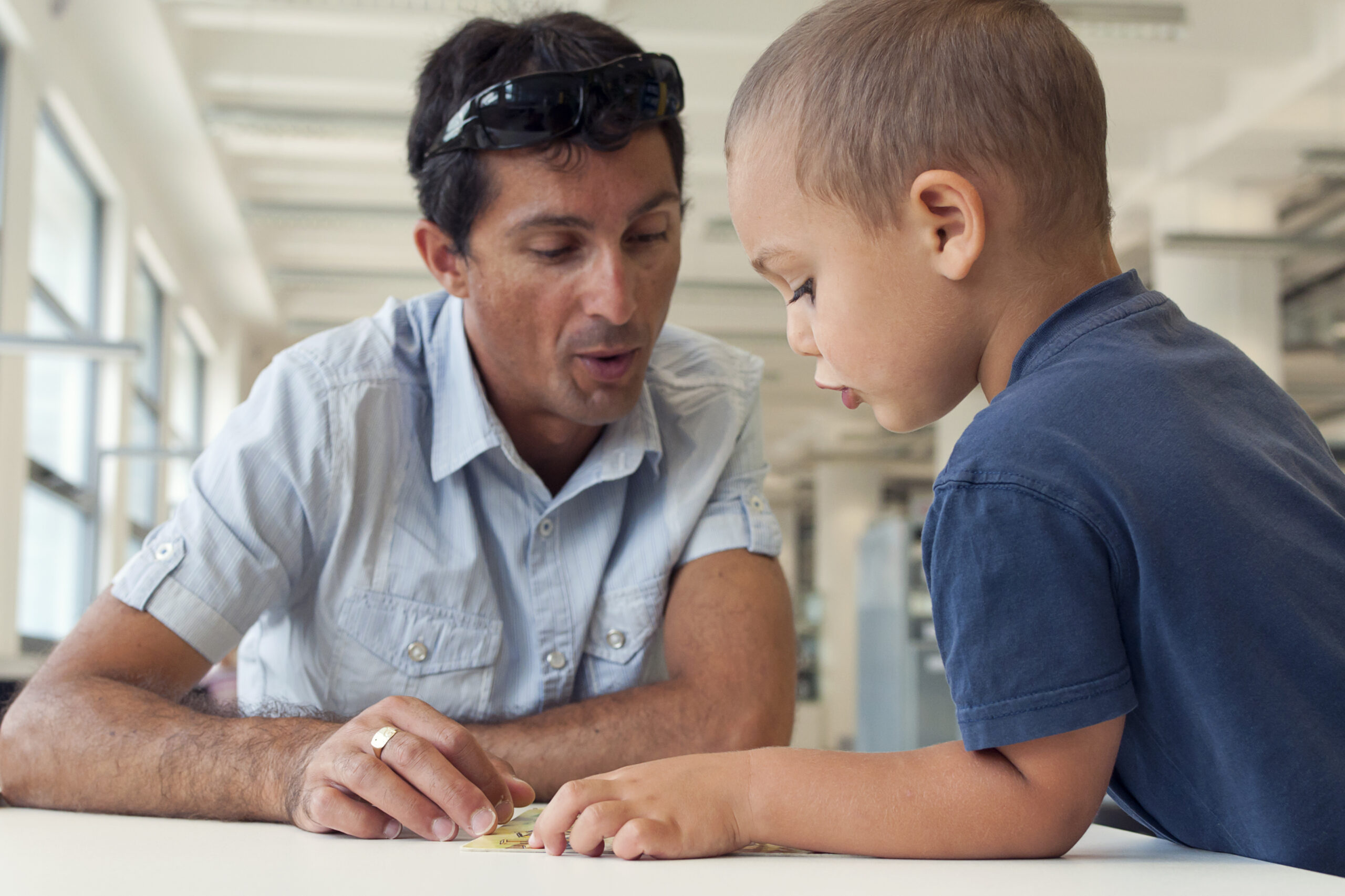
It’s never easy to start a serious conversation with a child. It can help to try to prompt them with a TV show or story book to introduce the topic.
Think about what you want from your chat with your child, and then consider how to approach the topic. Too forceful an opening might worry them, they may clam up or feel uncomfortable. But a more subtle approach might mean they get distracted and you discuss what you planned to.
It can be a good idea to try to make the conversation relevant to them. For example, if you know of a TV show or film that addresses the topic, like a character experiencing bullying, you can use this as a conversation starter. You could kick things off by asking your child what they’d do in the same situation.
There are also lots of story books written specially to help talk to children about serious subjects like death, abuse and bullying. We have lots of options for different ages on our online shop. After you’ve read the story together a couple of times, ask some gentle questions to check what they’ve understood. You could ask what they would do if they were the character in the story.
You could also start out by asking them what they think about the topic. If it’s something they’ve discussed in class, you could ask what they thought about the lesson or what their classmates thought. You could say that a friend of yours needs some advice about a particular issue and to ask if they have any ideas. It’s a nice way to show that you value their opinions while also finding out just how much they know about a subject – like how to stay safe on the internet.
If you’re worried or nervous about a conversation, it’s easy to forget that it should be going two ways.
It’s important to show that you are also listening to them and value what they’re telling you. We have some tips to help:
Sometimes your child might actually come to you to talk about a concern.
It may be that they want to talk about a friend who’s depressed or frightened because of bullying. Or it could be about something they’ve done themselves like sexting or trying alcohol.
It’s probably taken a lot of courage to even mention it to you so you need to make them feel as comfortable as possible about continuing the conversation:
It’s OK to ask your child what they’d like you to do about the situation but it could be something where you can’t do anything at all; for example, if they’re grieving over a death. What you can always do is reassure and support – starting with a big hug.
If there is anything you can do, and if you plan to do it, let your child know. Otherwise they may feel like you’re going behind their back and they should never have told you in the first place.
Unfortunately things do happen that can turn young lives upside down. Separation, illness and death obviously have a huge effect and talking about them needs to be treated very carefully. You should also be ready for things to get very emotional and perhaps distressing too.
So, before starting the conversation, there’s a great deal to get straight in your own mind:
When the time comes to break the news, remember to explain everything slowly, in words that your child will easily understand. It’s also very important to make sure they know that they’re not responsible or to blame in any way for what you are telling them.
Having difficult conversations is hard, but if you handle it well it can bring you and your child closer together and help you to understand each other a bit more. So put a little time and thought into the planning and it won’t just help to resolve or explain an issue, it could make your relationship even better too.
Please click HERE to donate to the NSPCC & support its vital work.
